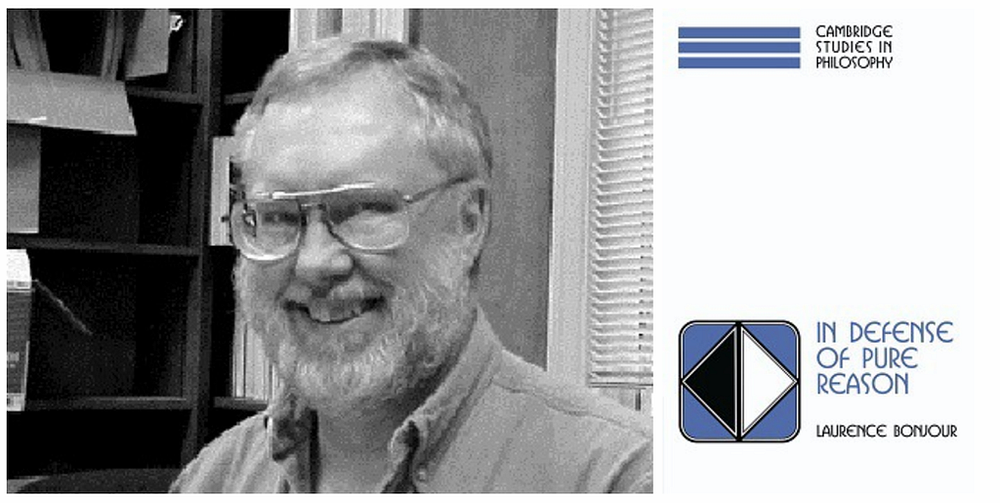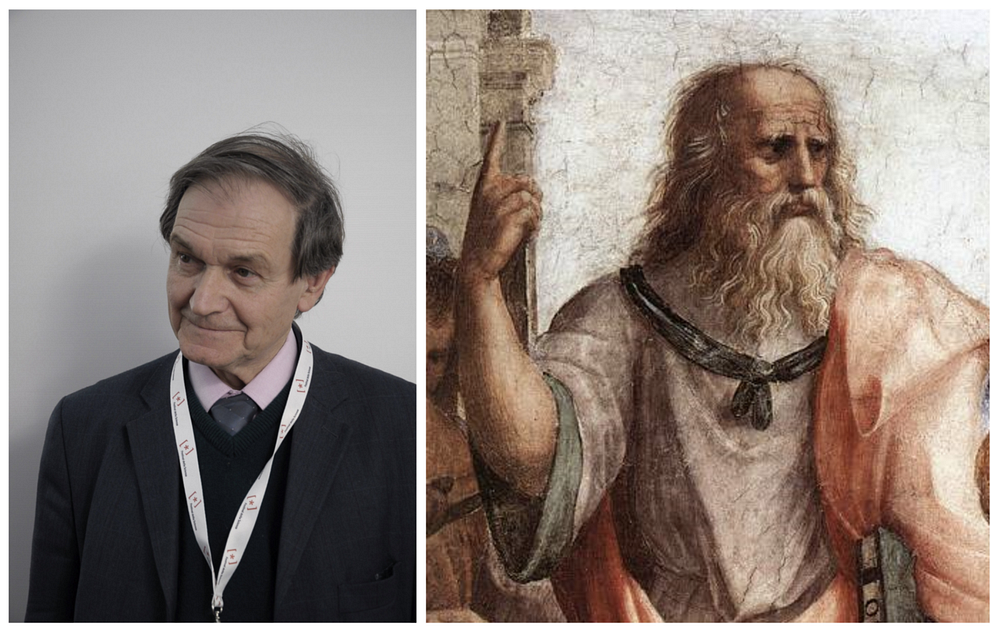Like many defences of philosophical positions, the defences of the a priori are often purely negative in nature. Such defences are like the following:
Q) What is a proposition?
A) A proposition is not a sentence or a statement.
So we also often get:
Q) What is the nature of a priori knowledge?
A) A priori knowledge which isn’t derived from experience.
Yet this is a little like the following:
Q) What is a dog?
A) A dog isn’t a cat.
Of course the least that can be said is that experiential (or observational) knowledge and a priori knowledge are both examples of knowledge. So the cat and the dog example isn’t completely fair. Yet they too are both animals and mammals. So what about this? -
A) A dog isn’t a rock.
In addition, in a loose sense clairvoyant “knowledge”’ isn’t — at least directly — derived from experience either. Are clairvoyant “skills” a priori? And even if such skills exist, we still haven’t been told what the a priori is. So clairvoyance may simply be an example of the a priori.
This was also the problem which W.V.O. Quine (1908–2000) had with analyticity. Many philosophers had previously defined this notion in terms of examples of analyticity (or in terms of analytic statements). According to Quine, they never told us what analyticity actually is. (See here.)
So the Australian philosopher Michael Devitt (1938-) wants a “positive characterisation” of the a priori.
Michael Devitt on Systems and a Priori Links
What sort of characterisation of the a priori would that be? Devitt demands that
“[w]e need to describe a process for justifying a belief that is different from the empirical way and that we have some reason for thinking is actual”.
That process of a priori justification is very difficult to describe.
Indeed even apriorists (such as Laurence BonJour — who’ll be discussed later) admit that. This, of course, isn’t an absolute argument against the a priori. Many things in philosophy and science are difficult to describe and sometimes even classed as “primitive” or “unanalysable”. However, it’s not just the process of a priori justification that’s at issue here: it’s also whether or not it is (as Devitt puts it) “actual” .
What reason do we have for believing that the a priori (or a priori justification) actually exists or is (as it were) instantiated in minds?
Devitt tackles the positions of the American philosopher Laurence BonJour (1948-).

Firstly, not all BonJour’s defences of the a priori are really arguments.
For example, BonJour has written that
“the rejection of any sort of a priori justification leads inexorably to a severe scepticism and to the undermining of reasoning or argument in general”.
This is a warning about the repercussions of rejecting the a priori: it’s not an argument against those who reject the a priori or an argument in favour of it. (Perhaps we can call it an example of catastrophising; as some psychotherapists put it.)
So why does the rejection of the a priori lead to scepticism?
Why does it lead to the “undermining of reasoning or argument in general”?
Quine’s Web of Belief
On Devitt’s “Quinian alternative”, we have the following two-fold “web”:
1) Beliefs which are “close to experience” (or on the “periphery” of the Quinian web).
2) Beliefs that are in the interior of the web.
According to the Quinian picture, beliefs captured by 2) above are justified “via links with beliefs at the periphery”. So there are links between interior beliefs and peripheral beliefs which are “close to experience”. However, as some aprioristic logicians and philosophers have asked: What about those links themselves? That is, do these “justifications depend on the links themselves being justified”? Surely these links must be logical. And if they’re logical, then they must also be a priori in nature. This must also mean that even Quine’s web of belief has an a priori element. Or so the story goes…
More clearly, the interior beliefs can be justified by the exterior — or peripheral — beliefs if and only if the links between the exterior and the interior have themselves been justified. So surely these links are logical and must therefore be a priori justified. Again, this means that Quinian webs of belief are (as it were) polluted by the a priori. Or as BonJour puts it:
“[T]he justification of these links has to be a priori; it could not come from experience.”
The strange thing is that many would think that even empiricists (or naturalists) would happily accept that anything purely logical must be a priori in nature. So it must follow that these links between the exterior and interior beliefs must also be a priori justified. That said, Devitt’s paper is entitled, ‘There is no a Priori’. This means that he must believe that these logical (or evidential) links must not be a priori (or justified a priori).
BonJour has more to say about the links in Quinian webs of belief (or the links in any such system). He writes (as quoted in Devitt):
“[I]f there is no a priori insight… no prediction will follow any more than any other… any… sort of connection between the parts of the system will become essentially arbitrary.”
BonJour is simply arguing that if you don’t accept a priori justification (or rational “insight”) for the links in a Quinian web of belief (or in any other corresponding system), then the “connection between the parts of the system will become essentially arbitrary”. This means that if we don’t have a priori justification (or insight), then we effectively have nothing in such systems. And if we have nothing, then that’s bound to lead to the “arbitrary” nature of the “connections between the parts of the system”.
The question is, then:
Is the a priori way out the only way out?
If we accept BonJour’s prognosis of the rejection of the a priori vis-à-vis Quinian webs of belief (or any such parallel systems), then it’s no surprise that “the rejection of all a priori justification is tantamount to intellectual suicide”.
Again, the question is: Is the a priori the only game in town?
It was mentioned earlier that many people see logic and mathematics as being the only domains of the a priori. Devitt himself states that
“the objection is that logic must be seen as a priori because we need logic to get evidence for against anything”.
So perhaps BonJour is acknowledging the following:
Yes, fair enough, evidence is indeed of supreme importance in science and in just about every other disciple. However, without the framework of a priori logic to hold it all together, all this evidence would amount to nothing.
Indeed BonJour argues that it wouldn’t even be evidence “for or against anything” if it weren’t for such logical frameworks. Alternatively put, if it weren’t for the logical links between this belief and that belief (or between this bit of evidence and that bit of evidence), then there would be no evidence in the first place. A priori logic ties all these things together.
This is partly why “the logic of science” isn’t itself scientific (or a science). Science and even naturalism (or empiricism) require logic. Thus someone like BonJour would conclude that science and empiricism (or naturalism) also require the a priori (or a priori justification).
The American philosopher Hartry Field (1946-) is also quoted as arguing that the
“‘links that hold the web of belief together reflect a set of rules that are part of an evidential system’”.
The quote above implies that the links between beliefs in any given system (or whatever) provide a “set of rules” within what Field calls an “evidential system”. Thus there would be no system (or web) without those links. So, according to someone like BonJour, there would be no system (or web) at all without the a priori.
It can be said that (Quinian) webs of belief will be — explicitly and implicitly — full of examples of the rule modus ponens. And Devitt himself offers modus ponens as an example of a “link” or “rule”.
So what it modus ponens? This:
If p, then q
p
So q.
Is the above an example of the a priori (as it were) in action?
Surely it is.
Doesn’t the inference (or rule) above itself instantiate the a priori? And can’t it only be known a priori? Indeed how does Devitt argue otherwise? If modus ponens (which is one of the most common rules or inference patterns) is truly a priori (or known to be true a priori), then it will be at the very core of every web of belief.
Webs of Belief and Systems
Yet more is said about this relation between a system (which is made up primarily of empirical beliefs or bits of evidence — loosely described) and its (possibly) a priori “deductive parts”. Devitt puts his adversary’s position thus:
“But what about the specific deductive rules that we do have insight into, rules like modus ponens? Even if our overall confidence in S is empirical, our confidence in these deductive parts is a priori. We know MP a priori at least.”
That means that if the system (S) is largely empirical (or our “confidence in S is empirical”), then we still need to answer for the specific deductive rules within it. So it’s claimed by BonJour that we do have (rational) insight into them. We have both confidence in the empirical parts of the system and a priori confidence in the deductive parts. The gist of this argument — again! — is that we simply can’t escape from the a priori (at least in the case of systems like S).
Devitt also puts a slightly different slant on all this.
Firstly we have the relation between
1) empirical beliefs (within a system) and their relation to the world (or to experience).
and
2) the evidential or deductive links between the beliefs within that system.
Alternatively, we have the following:
3) External links involving certain direct causal relations to the world.
and
4) Beliefs which involve inferential relations among “thoughts”.
The Cartesian (or rationalist) stresses both 2) and 4) above. He may even entirely exclude 1) and 3). (Many externalists, perhaps, do the opposite.) Or, as Devitt puts it, the Cartesian takes only “one of those relations”. That is,
“[w]hy suppose that, simply in virtue of her [the Cartesian] having that relation [as in 2) and 4)], reflection must lead her to believe that it does?”.
This seems to set up the Cartesian as a (partial) straw target; at least at first glance. In any case, perhaps a philosopher of mind or a cognitive scientist (rather than an epistemologist or a logician) is best suited to comment on at least aspects of this issue.
References
BonJour, Laurence, ‘Is There a Priori Knowledge?’ (2005)
Devitt, Michael, ‘There is no a Priori’ (2005)













